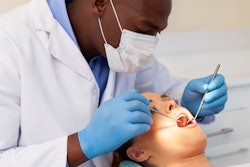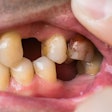Bipartisan investment and major reforms in oral healthcare delivery may address gaps in government dental coverage, including Medicare, according to a news release from the Harvard University T.H. Chan School of Public Health dated February 20.
Strengthening dental coverage in Medicaid, Medicare, and the Affordable Care Act (ACA) Marketplace, improving data reporting, and aligning benefits may enhance access and continuity, according to researchers from the university.
"The historical separation between dentistry and medicine has long led to a fragmented oral health care system, with inadequate funding and limited access to care," wrote the authors, led by Dr. Hawazin Elani, PhD, an assistant professor in the department of health policy and management at the university.
In 2023, approximately 70 million U.S. adults lacked dental coverage, and cost was the main barrier preventing nearly 60% from seeing a dentist. In 2019, untreated oral diseases cost the U.S. over $78 billion in lost productivity, according to the release.
Public insurance plans cover about half the population but don't fully cover adult dental care. Medicaid and ACA Marketplace coverage varies by state, while Medicare only covers limited medically necessary dental services. Medicare Advantage plans offer supplemental coverage, but it's often expensive and inadequate for those transitioning from Medicaid.
Potential improvements include making dental coverage standard in Medicaid, defaulting to plans with dental coverage in the ACA Marketplace, coordinating benefits for those moving from Medicaid to Medicare, and improving data collection to shape better policies, according to the release.
"Addressing these gaps requires a bipartisan effort and substantial reform of oral health care financing and delivery," the researchers wrote.




















